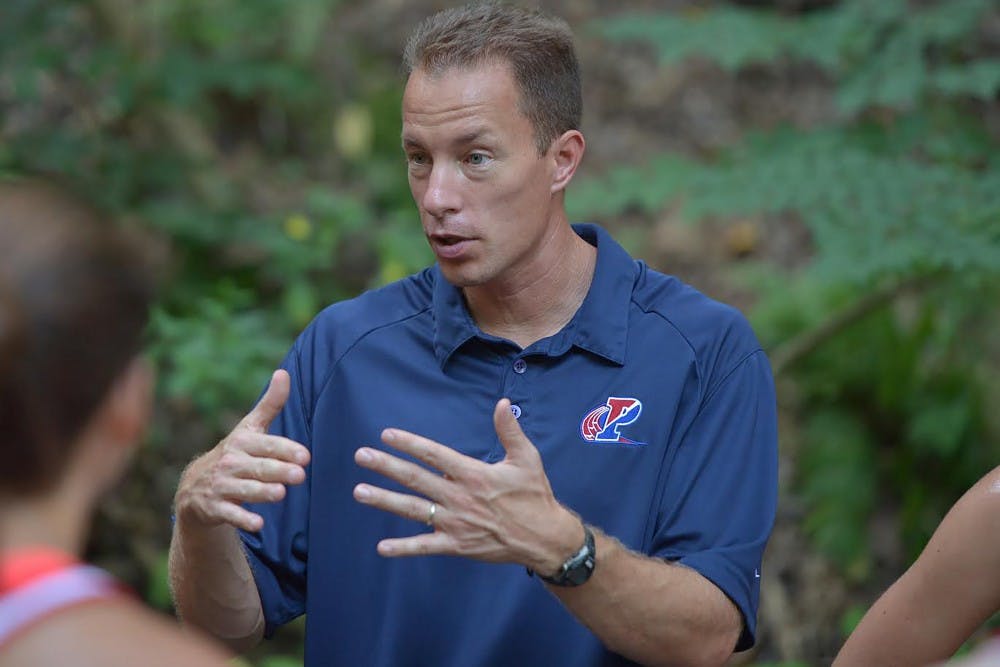In the lexicon of collegiate coaches, “expectations” has become somewhat of a taboo subject.
As an illustrative example, think about the approach of Penn’s famously process-oriented track and cross country coach, Steve Dolan. In my two-plus years on campus – all of which I have spent covering Penn’s runners – I’ve had quite a few conversations with Dolan, most of which have been quite insightful. But I have almost never been able to get him to plainly lay out his expectations for his teams.
I’m not talking about expectations for athletes’ conduct – I’m talking about expectations for future performances, expectations for future results.
None of this is to say that Penn’s coaches don’t have performance-related expectations for their athletes, but rather that they tend not to express them publicly. And that’s probably for the best, because under-promising and over-delivering is generally a low-risk, high-reward strategy for collegiate athletic programs.
At least internally, that is. Last year, a Penn women’s cross country squad woefully bereft of veteran firepower finished last in the Ivies. If that was Dolan’s realistic expectation going into the year, it certainly would have been disheartening to hear. And if he said, going into the year, that he expected them to be a top-notch Ivy squad, the future letdown would have been tremendous.
So going into a new season, the majority of Penn’s coaches are smart to stay mum on the subject of their expectations for their respective teams. But although this is a wise strategy for each team internally, is this actually good for Penn Athletics as a whole?
It’s no secret that Penn has struggled in recent years with athletic attendance, and part of that has to do with the expectations that Penn Athletics has implicitly established for its programs and relayed to its potential audience. For its publically visible teams, football and men’s basketball: mediocre play. For its less publicly-visible teams, the rest of them: who knows?
The thing is, fans have a right to expect something of the teams they go to see, whether that team’s coach establishes those expectations or not. It’s part of the deal – if you take the time to go see an athletic contest, you have a right to expect a certain level of performance. Otherwise, what’s the point of showing up at all?
As a start of Grace Calhoun’s term as Penn’s athletic director, 2014’s fall semester was a complete disappointment from a standpoint of objective results. Although then-junior runner Thomas Awad did take home an individual Ivy championship for the Red and Blue, no fall team truly challenged for an Ivy title. No team even finished runner-up.
As Penn Athletics’ target audience, you have a right to reasonably expect better this fall, and that applies to every single team.
From football – which finished a paltry 2-8 last year – you should expect to see tangible improvement from junior quarterback Alek Torgersen – who is going into his second year as starter – and a defensive secondary that proved to be paltry against the pass last season. And you should expect a completely different team culture, led by an overhauled coaching staff.
From men’s soccer – which failed to deliver on its Ivy title-level potential last year – you should expect a return to form and a run at an Ivy title. From men’s cross country and sprint football, you should expect to see teams pushing to break into the top tiers of their respective leagues.
From field hockey: a team on the brink of contending for an Ivy title. From volleyball and women’s soccer: a return to a more consistent level of play. From women’s cross country: a move out of the Ivy League’s cellar.
Again, you have a right to expect better from Penn Athletics this fall. And if the program expects to see its attendance to increase in the near future, it would be smart to wholeheartedly embrace these expectations itself.









